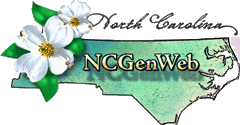With many thanks to Bebe Fox for this entry from the John Saunders Account Book. “We are fortunate to be able to take a peek into the new Towne at Eno on a Sunday in 1752, as a traveling salesman, from the well established area of tidewater Virginia, jotted his impressions into his account book. They are delightful.” Bebe
To paraphrase:… James Watson was kind enough to give us some corn for our horses and to put us into the new cut road for Orange Court House. In five miles we got to Eno River, the westernmost branch of the Newse [Neuse] and then had a very bad road and no water for a long way but in riding fifteen miles got to Orange Court House where was Sunday and people assembled and their appearance did not prejudice me much in their favour, but I soon understood they were Justices of the Court which dispatched our fears a little and they soon left us and we had pretty good ___. Mr. Kimbro [Marmaduke Kimbrough] keeping Ordinary but the houses excessive bad being built of logs and then laid verry, verry far from close that our lodging was verry airy and verry light notwithstanding we had never a window. ___ wanted to head on to the Pee Dee [River] but horse had lost shoe so we back toward the Eno.
Note from Bebe: The diary, now safe at the North Carolina Archives, was found in an abandoned doctor’s office in Edenton, NC, by a Union soldier, in August of 1863. Also found were two old Revolutionary muskets with two thimbles of powder and twenty-two buckshot. The doctor had evidently abandoned his office in a hurry.
From the Hillsborough Recorder, March 15, 1820:
CASH STORE The subscriber has lately opened a store in Hillsborough, in the house formerly occupied by him, where he offers for sale on very low terms for cash, a very considerable assortment of FRESH GOODS Among which are, a large assortment of superfine, fine, and coarse broad cloths, superfine and fine cassimeres, bed, duple and Dutch blankets, coatings vestings, white and coloured plains, flannels and baises, cassimere and Canton crape shawls, collicos, bombazttes, cotton hose, black silk handkerchiefs, an assortment of guns, some of which are of a very superior quality; trace chains, weeding hoes, frying pans, anvils, vises, sledge and hand hammers, bellows pipes and bands, crawley and blistered steel, carpenter’s planes, imported wagon boxes, patent cutting knives, and scythe blades, and a very large assortment of Hardware and Cutlery.
Kirkland, Webb and Co. have always on hand a considerable quantity of skirting, bridle, bag, upper and soal leather.
I wish to employ a sober, steady young man, who can come well recommended, and who has been brought up to the merchantile business, and is a good accountant.
Hillsborough, February 23, 1820
Wm. Kirkland
from “Our Pioneer Ancestors” by Henry Earle Riggs, pub. 1942; Chapter VII: The Baldridge Family [in this excerpt, the author is speaking of North Carolina]:
Up to 1770, the coast towns had one mail a month. The interior had no postal service. Roads were practically unknown, there were no bridges, no inns, and no facilities for travelling. The desperate loneliness is shown by a law that no corpse should be buried until three neighbors had been sent for to see it.
There was no literature, printing not being introduced in the colony until 1754, and as late as 1774, there were only two schools in North Carolina, at Edenton and Newberne. Conditions were similar to those in Virginia. Lodge says “It was scarcely more than an uncivilized reproduction of Virginia.” The wealthier class formed a distinct aristocracy, as in Virginia, although lacking the society and refinement of the northern colony.
Newspaper Ad, May 22, 1820:
Grocery Store
The subscriber has opened a Grocery Store, in the house formerly occupied by Mr. Bacon, as a shoe shop, where, among other articles, may be had for cash,
Coffee, first and second quality
Brown and loaf Sugar
Molasses
Good old Rum
New England ditto
French Brandy
Sherry and Malaga Wine
Porter and Cordial
Imperial Tea
Ditto in canisters of two pounds each, superior quality
China, in boxes of forty-eight pieces
Liverpool, Queen, Glass and Stone Ware
Muscatel Raisins, Figs, Prunes, Palm Nuts and Almonds
Nails, 4, 6, 8,10, 20d
Window Glass 8 by 10, and 10 by 12
Putty, White Lead, Red Lead, and Spanish Brown
Pepper and Spice Writing and Letter Paper
Pots and Ovans
Best Rifle Powder, and Shot of all sizes
No credit can or will be given
Hillsborough, D. Yarbrough
From the Hillsborough Recorder, February 7, 1852:
Messrs. Webb and Douglass have just completed a Cotton Factory, on Little River, about thirteen miles east of Hillsborough, and are now receiving their Machinery from the North. They expect to commence operations during the summer, and will run 1000 spindles.
Messrs. Robert and John Shields have also erected a Woollen Factory on Enoe, about seven miles east of Hillsborough. The machinery has all been received; and it is expected that they will commence operations in a few days. This we think is the third or fourth Woollen Factory in the State; and we look upon their introduction as of more importance, because, if we are not much mistaken, if proper facilities are afforded, Western North Carolina will eventually become a great wool growing country. We hope the location of the factory in Orange will induce our people to pay more attention to the raising of sheep; for it is generally considered to be the most profitable animal we can raise.
Eagle Foundery, owned by Messrs. Brown and Wilkinson, is situated on Enoe, about three miles east of Hillsborough. It has been in operation only a short time, and its ingenious and enterprising proprietors are constantly adding improvements. We are gratified to learn that the demand for their work is quite equal to their ability at present to meet it.
Messrs. Dickson and Brown’s establishment for manufacturing wool carding machines, wheat fans, etc., is situated on Enoe River about six miles east of Hillsborough.
To these we may add Mr. r. F. Webb’s establishment for manufacturing Window Blinds, a handsome article of which we have before spoken; and the Rev. John A. McMannen’s establishment at South Lowell, at which are manufactured smut machines, which we see by frequent mention in our exchanges are obtaining considerable celebrity in the State on account of their excellence. He also manufactures Patent Corn Shellers, etc., which are in good repute.



